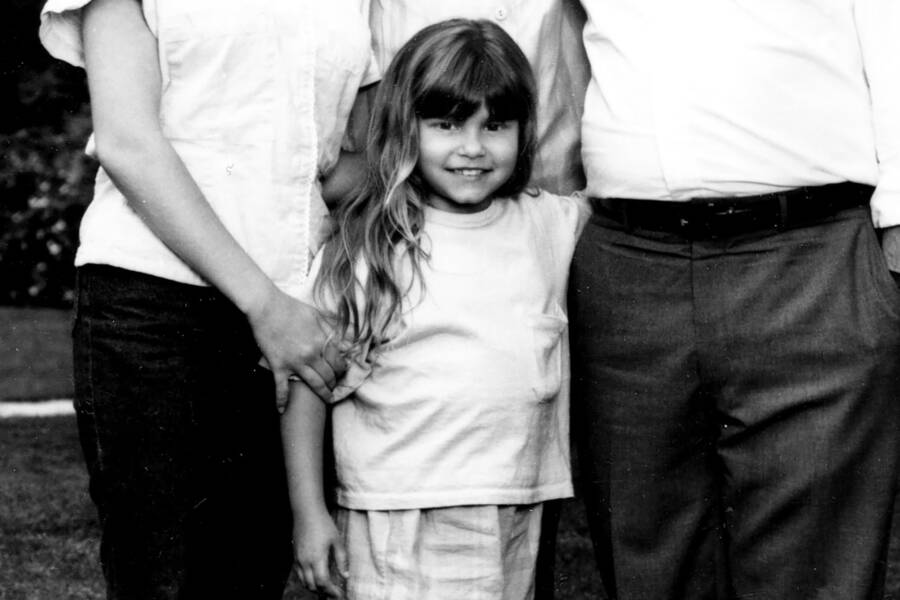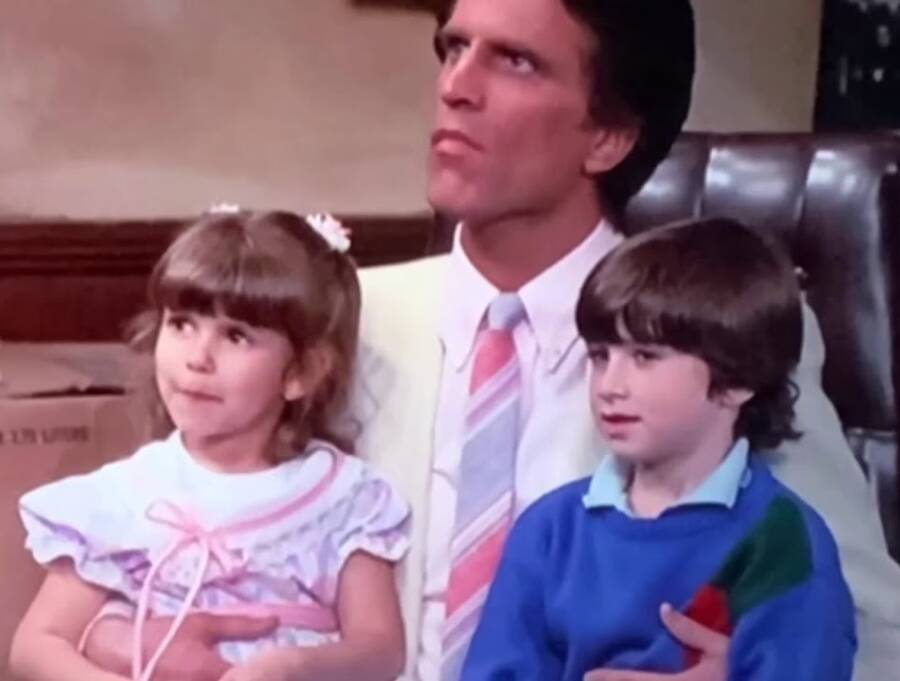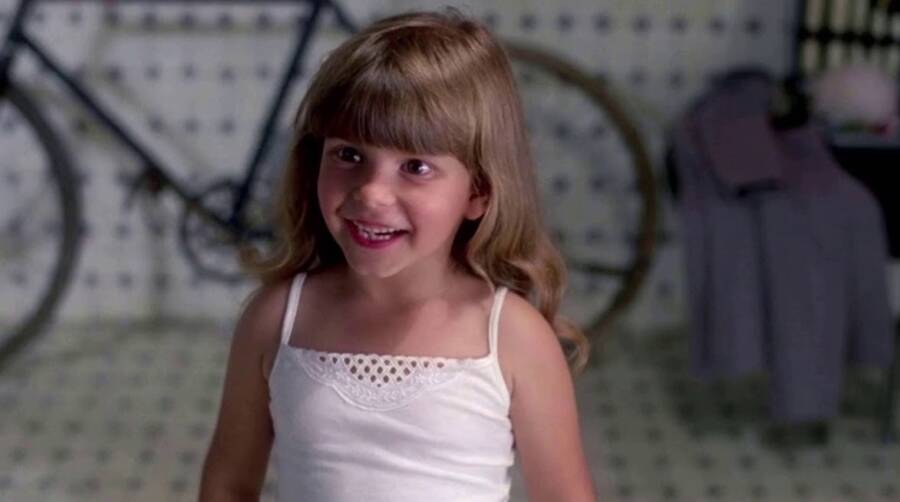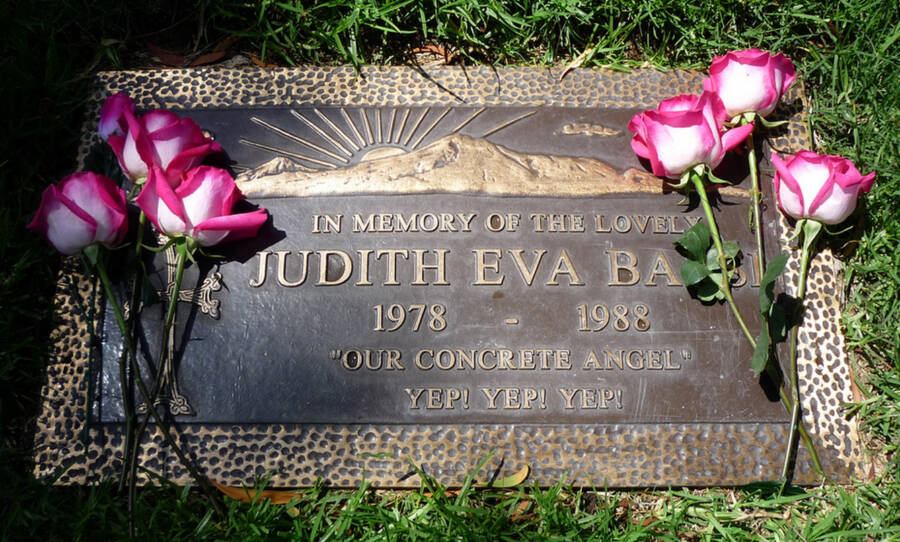Judith Eva Barsi was a promising child star before her father József Barsi murdered her and her mother Maria inside their Los Angeles home on July 25, 1988.

Judith Barsi was only 10 years old when her father murdered her in their San Fernando Valley home.
On the outside, Judith Barsi seemed to have it all. At just 10 years old, she had snagged a number of film and TV roles, appearing in Cheers and Jaws: The Revenge and lending her voice to animated movies like The Land Before Time. But her rising star dovetailed with her father’s abuse.
Behind the scenes, József Barsi terrorized his family. He abused both Judith and her mother, Maria Virovacz Barsi, and even told friends about his murderous urges toward them. In 1988, József gruesomely followed through with his threats.
This is the tragic tale of the death of Judith Barsi, the talented child actor murdered by her own father.
Judith Barsi, From The Child Of Immigrants To A Hollywood Actor
From the beginning, Judith Eva Barsi seemed destined to have a different life from her parents. She was born on June 6, 1978, in sunny Los Angeles, California. József Barsi and Maria Virovacz Barsi, on the other hand, had separately fled the 1956 Soviet occupation of their native Hungary.
Maria, dazzled by the stars in nearby Hollywood, was determined to guide her daughter toward a career in acting. She taught Judith about posture, poise, and how to speak.
“I said I wouldn’t waste my time,” Maria Barsi’s brother, Joseph Weldon, recalled. “I told her the chances are one in 10,000 that she would succeed.”

Judith Barsi (left) with Ted Danson on Cheers in 1986.
But in a spurt of Hollywood magic, Maria did succeed. As it often happens in Los Angeles, where something is always filming, Judith Barsi was spotted by a crew at an ice rink. Enchanted by the petite blonde girl effortlessly gliding on the ice, they invited her to join their commercial.
From there, Judith’s career as an actress grew. She starred in dozens of commercials, made appearances on TV shows like Cheers, and won roles in films like Jaws: The Revenge. Hauntingly, Judith played a daughter murdered by her father in the 1984 miniseries Fatal Vision.
Casting directors were enchanted by her small size, since it let her play younger characters. Judith was so small, in fact, that she received hormone injections to help her grow.
“When she was 10, she was still playing 7, 8,” explained her agent, Ruth Hansen. Judith Barsi, she said, was a “happy, bubbly little girl.”
Judith’s success helped her family thrive. She made about $100,000 a year, which her parents used to buy a three-bedroom house at 22100 Michale Street in the Canoga Park neighborhood at the western edge of the San Fernando Valley. Maria’s greatest dreams seemed to be coming true, and Judith seemed destined for success. But Judith’s father, József Barsi, cast a dark shadow on her childhood.
The Disturbing Abuse That Preceded Judith Barsi’s Death
As Judith Barsi’s star burned brighter, her home life grew darker. Outside the glare of the spotlight, Judith and Maria Virovacz Barsi suffered abuse at József’s hands.
A heavy drinker and quick to anger, József focused his wrath on his wife and daughter. He threatened to kill Maria or even kill Judith so that Maria would suffer. A friend of his named Peter Kivlen recalled that József told him hundreds of times that he wanted to kill his wife.

Judith Barsi in Slam Dance (1987). Her bubbly personality concealed the terrible abuse she suffered at home.
“I’d try to calm him down. I’d tell him, ‘If you kill her, what will happen to your little one?'” Kivlen said. József’s response was chilling. According to Kivlen, he said: “I gotta kill her too.”
On one occasion, József Barsi grabbed a kite from Judith. When Judith worried he’d break it, József called his daughter a “spoiled brat” who didn’t know how to share. He smashed the kite into pieces.
Another time, as Judith prepared to fly to the Bahamas to film Jaws: The Revenge, József threatened her with a knife. “If you decide not to come back, I will cut your throat,” he said.
Weldon remembered overhearing a conversation between father and daughter soon afterward while Judith and Maria visited him in New York. He says József Barsi said: “Remember what I told you before you left.” Judith burst into tears.
How Judith Barsi Died At The Hands Of Her Father
Soon, Judith’s abuse at home began to seep into her day-to-day life. She plucked out all her eyelashes and her cat’s whiskers. Judith told her friends she was afraid to go home, saying, “My daddy is drunk every day, and I know he wants to kill my mother.” And shortly before an audition in May 1988, she became hysterical, alarming her agent.
“That’s when I realized how bad Judith was,” Hansen remembered. “She was crying hysterically, she couldn’t talk.”
Although Hansen insisted that Judith Barsi see a child psychiatrist, who reported the case to the Los Angeles County Department of Children and Family Services, nothing changed. Maria hesitated to leave her house and husband, both out of fear for her safety and a reluctance to abandon the life she’d built.
“I can’t, because he’ll come after us and kill us, and he’s threatened to burn the house down,” she told a neighbor.
Still, Maria Barsi took tentative steps to escape her husband’s abuse. She started weighing divorcing József and even rented an apartment in Panorama City closer to the movie studios where she could escape with Judith while she filmed. But Maria’s hesitation in leaving her husband proved fatal.
At around 8:30 a.m. on July 27, 1988, one of the Barsis’ neighbors heard an explosion next door.
“My first thought, as I ran in to call 911, was, ‘He’s done it. He’s killed them and set a fire in the house, just like he said he would,'” the neighbor told the Los Angeles Times.
József Barsi had done exactly that. It appeared he’d killed Judith and Maria a few days before, likely on July 25. Police found Judith Barsi in her bed; Maria Virovacz Barsi was in the hallway. Both had been shot and doused with gasoline, which József ignited shortly before dying by suicide in the garage.
The Tragic Legacy Of Judith Barsi
Though Judith Barsi died in July 1988, she lived on through her acting. Two of her animated films came out after her death: The Land Before Time (1988) and All Dogs Go To Heaven (1989).

Judith Barsi’s gravestone contains a nod to one of her most famous roles, Ducky the dinosaur.
In The Land Before Time, Judith voiced the cheerful dinosaur Ducky, whose signature line “yep, yep, yep!” is inscribed on her tombstone at Forest Lawn Memorial Park in Los Angeles.
And in All Dogs Go To Heaven, Judith played Anne-Marie, an orphan who could talk to animals. That film ends with the song “Love Survives” and is dedicated to Judith’s memory.
Yet before Judith Barsi’s death, her star had only just begun to shine. “She was very successful, with every door open to her,” said Bonnie Gold, the spokeswoman for Judith’s acting agency. “There’s no telling how far she would have gone.”
Some allege that Judith didn’t go far at all, and remained in the house where she died as a ghost. In 2020, the family who bought the former Barsi home reported feeling cold spots throughout the premises and said that the garage door seemed to open and close on its own.
On the show Murder House Flip, a team arrived to brighten up the colors in the house and to allow for more natural light. Whether or not the house was ever haunted, the new owners say that the renovation improved things.
But in the end, Judith Barsi lives on primarily through her films, TV shows, and commercials. Though her appearances are somewhat haunting today, they also capture the spark of Judith’s talent. That spark could have burned brightly if her father hadn’t snubbed it out.



